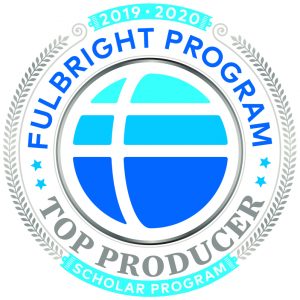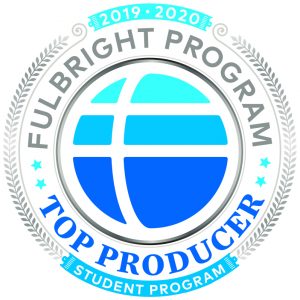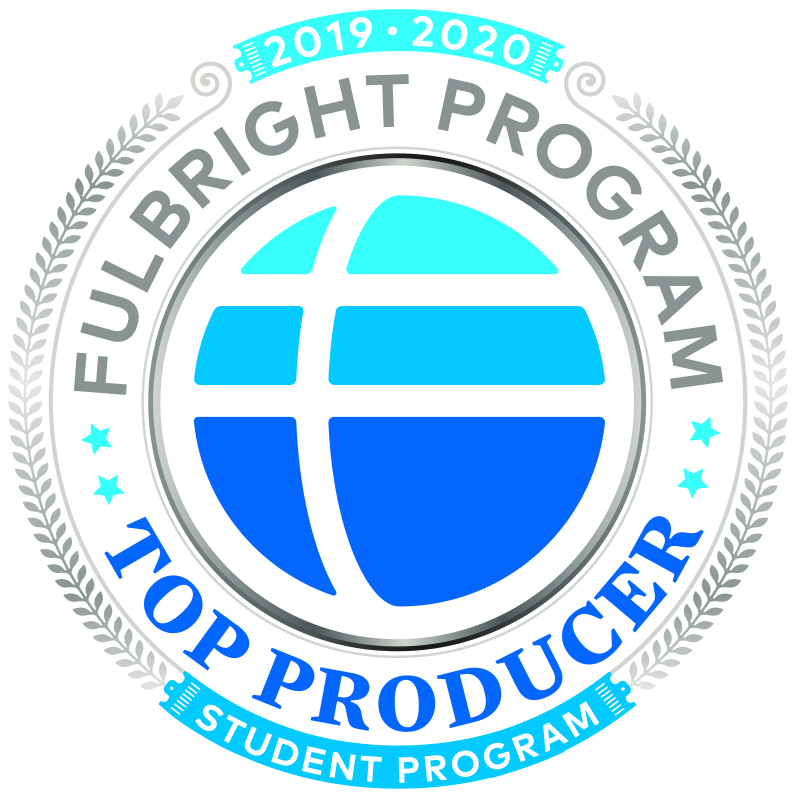

What makes a “Fulbright Top-Producing Institution“? A variety of institutions discuss their efforts to recruit, mentor, and encourage students and scholars to apply for the Fulbright U.S. Student and U.S. Scholar Programs. We hope these conversations pull back the curtain on the advising process, and provide potential applicants and university staff with the tools they need to start their Fulbright journey.
“At Northwestern University, we believe that relationships fuel knowledge. Collaborations among individuals and institutions, globally and locally, drive new discovery and innovation. Fulbright offers a platform to build new relationships and deepen existing partnerships in order to work together to identify new solutions to address the world’s most critical challenges.”
By Northwestern University Staff
Question: Your outstanding faculty/students are one of many factors that led to this achievement. What makes your faculty/students such exceptional candidates for the Fulbright Program?
Our campus is both international- and service-oriented. Northwestern students work, live, and study with students from around the globe. Similarly, our faculty as a whole is deeply international in their background and their outlook. Our students confront and embrace the concept of “difference” daily and are comfortable asking questions that do not have easy answers. We have robust connections with our language faculty who participate on panels and promote the Fulbright Program to their students. Further, a spirit of service pervades this campus. It is rare to find a student who is not actively engaged in socially focused extracurricular activities. Add in the rigorous intellectual climate at Northwestern, and the result is that students are engaged with the world, have empathy for and curiosity about all people, and possess an inquisitive disposition—which, essentially, makes them great Fulbright applicants.
Northwestern’s many strengths are amplified by our culture of collaboration; our research and learning culture is deeply multidisciplinary. In a world where the greatest innovations are produced by teams, not individuals, Northwestern faculty and students are prepared to engage across disciplines and with international partners. This makes them excellent candidates for Fulbright awards because they approach the opportunity already coming from a culture of collaboration across boundaries of all kinds.
What steps have you taken to promote a Fulbright culture on your campus?
We work to keep Fulbright in front of students year-round. We joke that it is “always Fulbright season,” but this is more than a little true. Beginning with the national deadline, we communicate directly with last cycle’s non-recommended applicants and those who began, but did not finish, the application. We see both cohorts as likely candidates for the next cycle. Further, those students who go through our application process are our best advertisement! Our process really gets underway in January with a series of informational meetings which then morph into application workshops in May and June (Northwestern operates on a quarter schedule). In addition to specific Fulbright-focused events, nearly every conversation with students or presentation about fellowships uses Fulbright as an example. During the summer, students work closely with a Fulbright Program Adviser, whom we assign. This close relationship is in addition to their departmental mentors and cements their engagement with our office and the Fulbright application process.
How has your institution benefited from increased engagement with the Fulbright Program?
Northwestern University has been a consistent Fulbright Top Producing Institution for over a decade. Thanks to this record, most students and their faculty mentors see Fulbright as an excellent opportunity to further their interests. We are blessed with a good word-of-mouth network, which encourages students to develop an international outlook early in their education. Fulbright is a well-established aspirational goal for our students, and they see that their chances of receiving an award is within their grasp. They begin on-campus research experiences and language study knowing that developing these skills will help them to extend their local goals onto a global stage.
How does your institution support faculty and administrators who apply to the Fulbright Program?
For administrators who wish to apply to the Fulbright Program, Northwestern’s Office of International Relations promotes the opportunity and provides editorial feedback to staff on their applications.
For faculty, we connect prospective applicants with colleagues who have had Fulbright awards or who have hosted Fulbright representatives on campus and facilitate faculty members’ efforts to bring colleagues with Fulbright grants to campus when possible.
Find out more information about the ways that Northwestern connects with the Fulbright Program here.
What advice do you have for other universities and colleges that want to increase the number of Fulbrighters produced by their institution?
Success with the Fulbright Program starts with an internationally focused institution and strong faculty support. While individuals working with Fulbright applicants might not be able to single-handedly internationalize their campus, they can help faculty see the value in this program and in global opportunities as a whole. Through advertising, individual meetings, group meetings, and conclaves with appropriate faculty, an adviser can facilitate that moment when a faculty member taps a student on the shoulder and says, “You know, you should apply for a Fulbright.”


